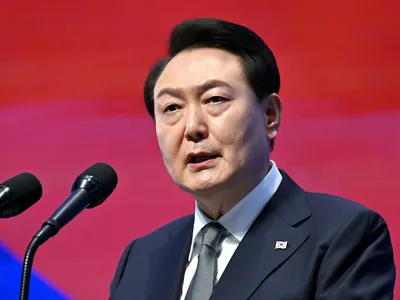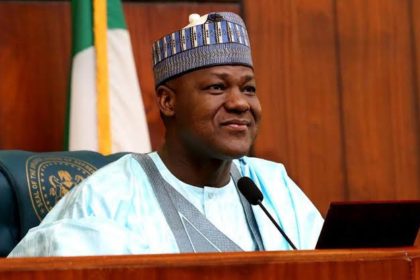South Korea’s parliament has voted to impeach President Yoon Suk Yeol following his controversial and unsuccessful attempt to impose martial law earlier this month. The dramatic decision, which marks a watershed moment in South Korea’s political history, comes amid widespread protests and a nation bitterly divided over Yoon’s leadership and actions.
The impeachment motion, passed on Friday, saw 204 lawmakers vote in favor, while 85 opposed it and three abstained, signaling a major political blow to Yoon’s presidency. The outcome, however, does not automatically guarantee his removal from office. Under South Korea’s constitution, the impeachment now triggers a trial before the Constitutional Court, which will determine whether Yoon can remain in power. The court will deliberate on the legitimacy of the impeachment and the gravity of the president’s actions in the coming weeks.
President Yoon, already under criminal investigation for alleged insurrection, declared martial law in early December, citing the need to rid the country of what he called “pro-North Korean forces.”
His move sparked nationwide outrage, plunging South Korea into its most severe political crisis in years. Critics denounced the declaration as an authoritarian overreach, accusing Yoon of undermining democratic principles under the pretense of safeguarding them.
Facing mounting criticism, Yoon issued a public apology but simultaneously defended his controversial decision as a necessary step to protect the country’s democracy.
“I acted in the best interest of our nation and its democratic institutions,” he said during a televised address earlier this week. “While I regret the turmoil caused, my intentions were to uphold our values against external and internal threats.”
The impeachment vote took place under the shadow of massive demonstrations that showcased deep divisions within South Korean society. Outside the National Assembly, an estimated 200,000 people gathered in fervent protest, demanding Yoon’s removal.
The protest, described by local police as one of the largest in recent memory, reflected growing frustration among citizens over what many view as a betrayal of the democratic process. Chanting slogans and waving banners, demonstrators called for accountability and an end to what they labeled as Yoon’s authoritarian tendencies.
“We cannot allow a president to undermine our democracy,” said Kim Soo-jin, a protester from Incheon. “His attempt to impose martial law reminded us of darker days in our history. He must be held responsible.”
Elsewhere in Seoul, however, thousands of Yoon’s supporters staged counter-protests, underscoring the nation’s stark political polarization. Near Gwanghwamun Square, a sea of South Korean and American flags waved in the air as loyalists sang patriotic songs and voiced their support for Yoon.
“President Yoon is a strong leader who is trying to protect our country from external threats,” said Park Jung-ho, a businessman who traveled from Busan to join the rally. “The opposition is trying to twist his actions for their own gain. He deserves our support, not impeachment.”
The political turmoil comes at a critical time for South Korea, which faces challenges both domestically and internationally.
The country remains a key U.S. ally in the region and a major economic powerhouse, but Yoon’s impeachment raises concerns about political stability.
Analysts have warned that the prolonged political uncertainty could harm investor confidence, slow economic growth, and weaken South Korea’s geopolitical standing.
Professor Lee Ji-hyun, a political analyst at Seoul National University, described the impeachment as a necessary but risky move.
“The parliament’s decision reflects the severity of Yoon’s actions, but it also plunges South Korea into an extended period of instability. The Constitutional Court’s ruling will be pivotal not only for Yoon’s future but for the nation’s democratic resilience,” Lee said.
The impeachment process itself is a rare and complex event in South Korean politics. Under the country’s legal framework, the Constitutional Court must reach a decision within 180 days.
For Yoon to be permanently removed, at least six of the court’s nine judges must uphold the impeachment. Until then, the president remains suspended from office, with Prime Minister Han Duck-soo expected to assume interim leadership responsibilities.
This is not the first time South Korea has seen a sitting president impeached. In 2017, President Park Geun-hye was ousted after the Constitutional Court upheld her impeachment over a massive corruption scandal. That case, like Yoon’s, triggered widespread public protests and deepened political divisions.
International reactions to Yoon’s impeachment have been cautious, with South Korea’s allies expressing hope for a peaceful and democratic resolution to the crisis. The United States, a key partner, urged calm and emphasized the importance of maintaining stability in the region.
“We respect South Korea’s democratic processes and trust that this matter will be resolved in accordance with its laws and institutions,” a U.S. State Department spokesperson said.
As the country awaits the Constitutional Court’s deliberations, South Koreans are bracing for continued political unrest. The scenes of mass protests and counter-protests serve as a stark reminder of the deep fractures within society.
For many citizens, the coming months will be a test of South Korea’s democratic foundations and its ability to navigate one of the most challenging periods in its modern political history.
“I fear the division we are witnessing right now,” said Lim Hyeon-woo, a university student observing the protests. “We must find a way to come together as a nation, regardless of the court’s decision. Our democracy depends on it.”
The impeachment of President Yoon Suk Yeol marks a dramatic chapter in South Korea’s political journey, one that could reshape the country’s leadership and its future trajectory. .




